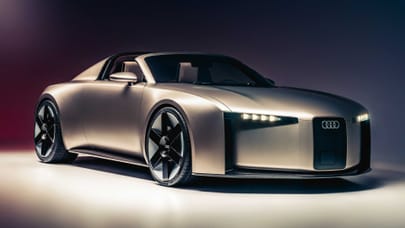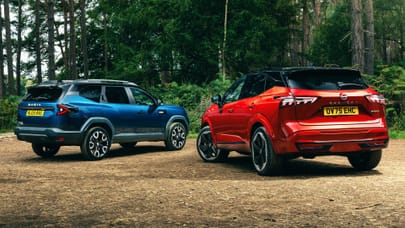
Jeremy on: saving Britain’s economy
I studied economics for A-level. And I should say at the outset I scored a U, because I didn't turn up for the exam, because there was no point, because I'd spent all of my time in lessons either doing the Melody Maker crossword or looking at a picture of the SR-71, which, for some reason, featured in an advert that ran every week in The Economist.
I also studied English. Not that you'd realise this if you've just read the first paragraph. But let's not get bogged down here with sentence construction. The point is, I spent two years sitting in a room where a man who never used to shake his penis properly after urinating used to drone on and on about Keynes and Smith. Some of it must have lodged in my head, though, and, as a result, I feel qualified to comment on the state of Britain's economy: it's very bad.
There are, as I see it, two ways out of the problem. You can put your money in the bank, and in return for half a per cent interest every 16 years, you get a piece of paper with some numbers on it every month and the telephone number of a customer relations man in India who has never heard of you.
There's another drawback to keeping your money in a bank, which is this: you will wake up every day terrified that in the night Greece has pulled out of the euro, the bank with your money has gone bust as a result and all your savings have ended up in a big invisible hole just outside Athens.
So. Keeping your money in a bank doesn't sound like a very good idea. But I'm afraid it is, because if everyone decided to take their savings out of the banks and the building societies and the pension funds, the financial services industry would disintegrate. And the financial services industry is not Belgian or Tunisian. It's British. The country needs it.
However, if we do take our money out of the bank and spend it, then money is sploshing about in the system again, and that's good for the economy. But whose economy? Probably not Britain's, because the only stuff we make is not the sort of stuff you want to buy. The wings for an Airbus, for example. Or the little plastic fasteners that hold the HT leads straight on a Honda Civic.
What I really want to buy at the moment is a Rolls-Royce. And that's odd, because this must surely be one of the most tarnished brands in all of human history. If there were a car called the Pol Pot, it would have more kudos.
Back in the early days of motoring when all the controls inside your car were actually outside, the Rolls was a tool for reminding the forelock-tugging peasantry that their lives were pointless. And that they should be glad that they'd just caught cholera.
Early Rolls-Royces were like gigantic wedding cakes. Even Caligula would have called them ostentatious.
After the war, when cars started to look like cars and designers hit upon the novel idea of bringing the gearlever and handbrake levers out of the weather, Rolls-Royce continued to be wilfully old-fashioned. It still believed that the engine and the front wheels needed to be shrouded with two separate pieces of metalwork, and that running boards still had a point.
Top Gear
Newsletter
Thank you for subscribing to our newsletter. Look out for your regular round-up of news, reviews and offers in your inbox.
Get all the latest news, reviews and exclusives, direct to your inbox.
By the Sixties, when the Labour Party was raising taxes on unearnt income to 98 per cent and generally making it very difficult and very embarrassing to be hardworking and successful, the rich had to keep their heads down, which meant you had to be especially pig-headed and thick-skinned to buy a Roller.
Indeed, the only people who bought them at this point were chaps called Vince, who had a team of attack dogs and a squad of thickset minders on hand to bite off the noses of those who thought it appropriate to make disapproving hand gestures.
Still, over the years, there had always been a sense that despite the wonky brand image, Rolls-Royces were engineered to a higher standard than lesser cars, that they cost a lot to buy because they cost a lot to make.
In the Eighties, though, even that crumb of credibility was taken away, because Nissan and Toyota had demonstrated that, for genuine engineering perfection, production lines and bulk buying and robots were the tools you needed, not some old man with a brown store coat and a Woodbine curling smoke into his eyes.
But Rolls couldn't afford a production line. And it didn't make enough cars to get the mass-produced, machine-built parts it needed for better reliability, quieter running and increased power. It had no clout in the market place. Which meant that, behind the beautifully veneered dashboard and under the thick carpets, the cars were essentially crap.
Rolls couldn't afford to design a new engine. It couldn't afford to design a new gearbox. It was asking customers to pay five times the price of a normal saloon for an ostentatious Vince-mobile whose roots were in the Fifties. Rolls would have gone belly up were it not for the intervention of VW. The mighty German bought Rolls, and its sister company Bentley, and young men drew up plans for rejuvenating the company whose engines had held their Dads at bay 50 years earlier.
But then came a discreet "ahem" from BMW whose chairman pointed out to the VW boss - on the golf course, apparently - that while VW had bought Rolls-Royce Motor Cars, it had no rights to use the Rolls-Royce name. Because of a tie-up with the jet-engine arm, that belonged to BMW.
I can't imagine the VW chappie could concentrate much on his game after he realised that he had no choice but to sell on his new acquisition to his rivals from Munich. Who built a new underground factory in Goodwood and launched the Phantom.
It should have been the worst car in the world. A tarnished British badge made from BMW bits by the bloody Germans. And yet, it wasn't.
Because BMW had the financial clout to access the global parts bin, and a deep understanding of what a luxury car should be like, it was an engineering masterpiece. It looked sensational, it drove beautifully and it was built to the sort of standards normally only seen in eye surgery.
Simon Cowell promptly bought a Maybach. Of course he did. He worked all day with shop assistants and clerks. He couldn't possibly have a Rolls. But then, after I urged him to have a look, he changed his mind and now has two.
So now we have a brand whose past is steeped in snobbery of the worst kind, and whose main ambassador is Simon Cowell. Along with Lieutenant Sir Lord Sugar and Sergeant AA Gill.
On this basis, I shouldn't want one. But I do. The idea of taking out my savings and putting them all on a black Rolls-Royce consumes every waking moment.
On the face of it, this would do bugger all to help the British economy. But it will help Germany's. Which, if we're to stay in the EU, is what matters most of all these days. The Boche must be strong to keep the weaklings afloat. We must buy German. For the good of the world, then, I must buy a Phantom.
Trending this week
- Car Review
BMW 1 Series
- Top Gear's Top 9
Nine dreadful bits of 'homeware' made by carmakers








